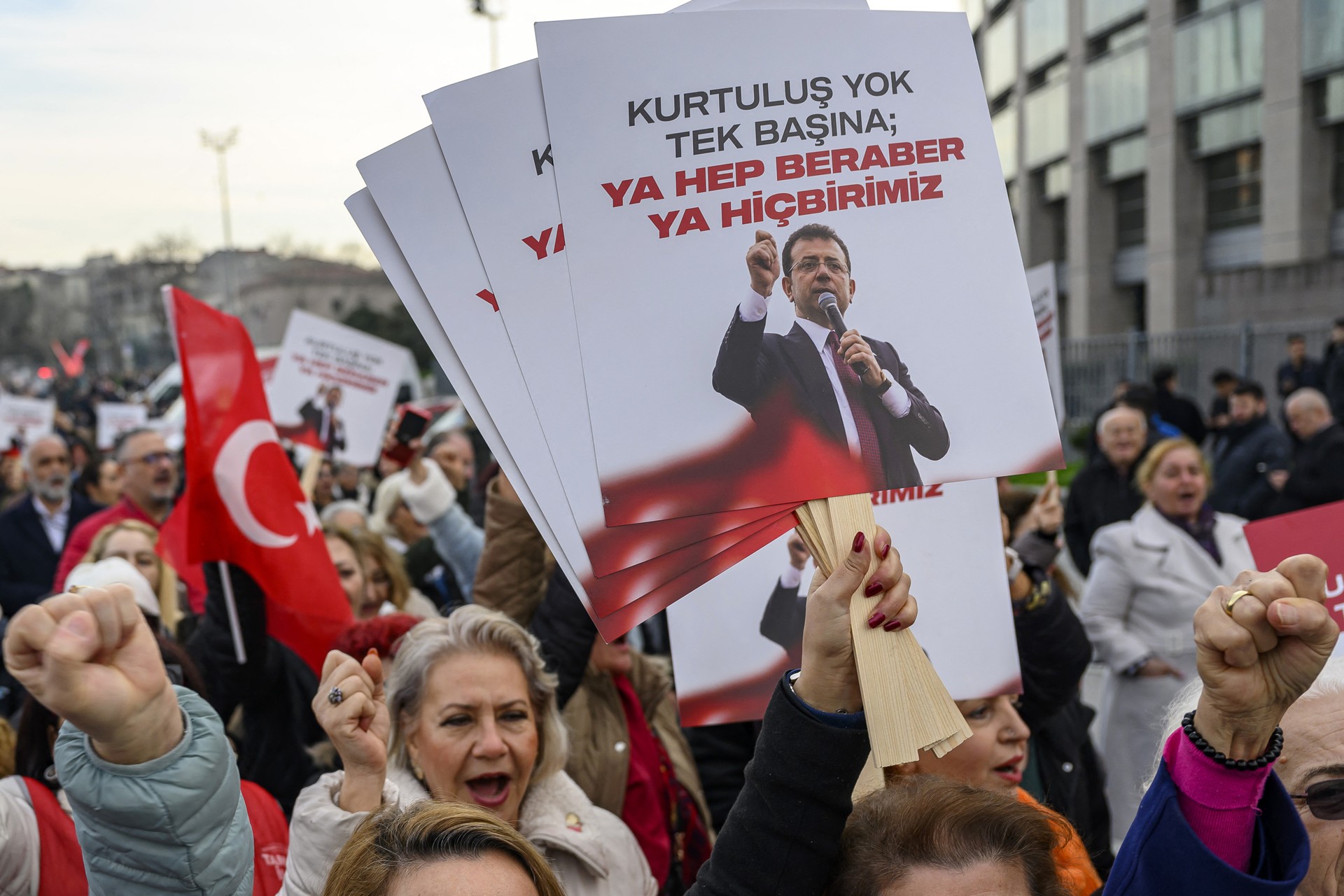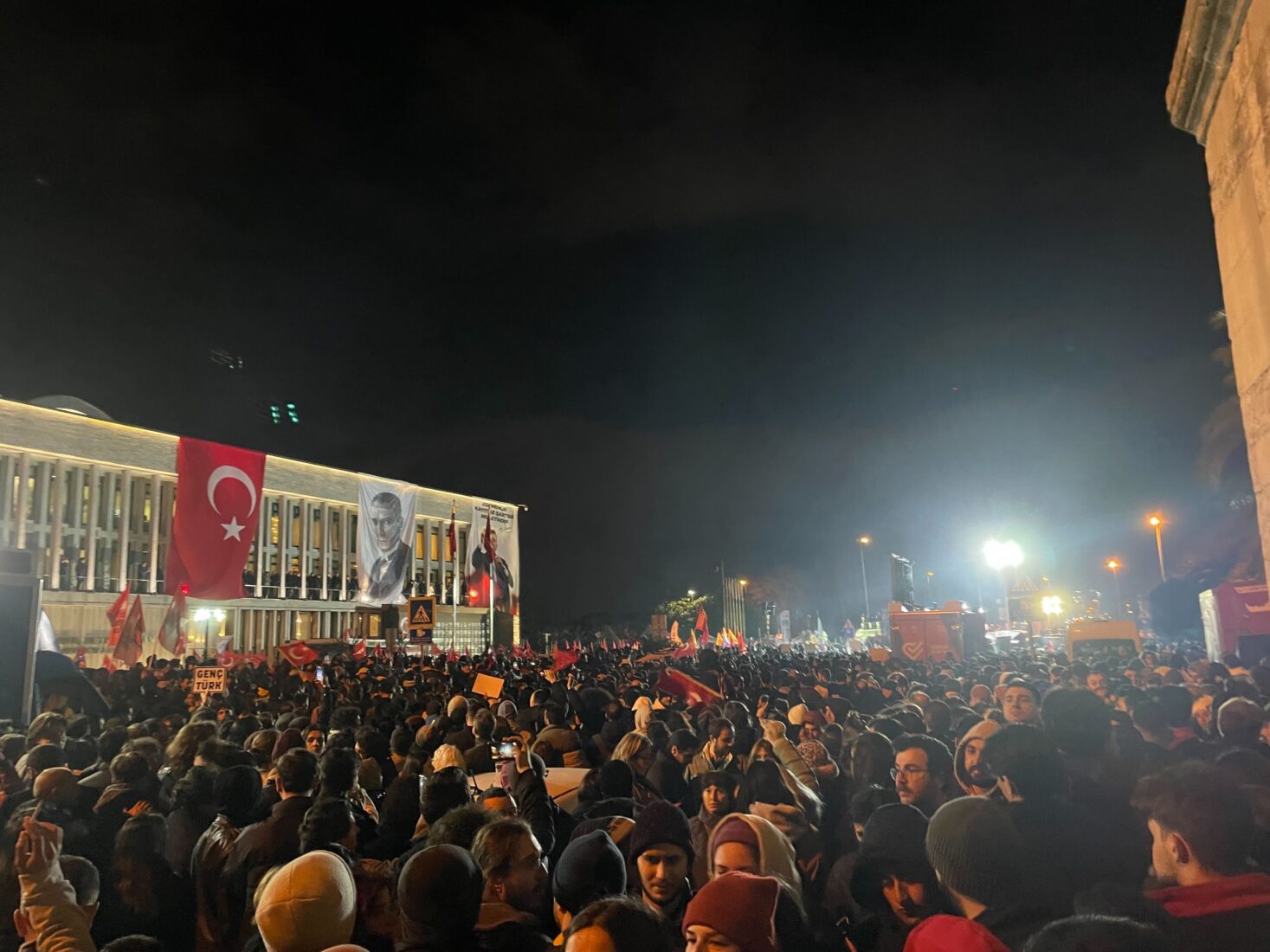
Istanbul Mayor Ekrem Imamoglu is at the center of multiple investigations, including corruption, fraud, and allegations of ties to terrorist organizations. The legal actions against him involve two main probes: a corruption investigation related to public tenders and a municipal employment case alleging the recruitment of individuals with ties to the terrorist group PKK. Additionally, separate claims have emerged regarding the handling of party funds, adding another dimension to the controversy.
It is important to know the nature of these investigations as the outcome will also determine whether the Istanbul Metropolitan Municipality (IBB) remains under the opposition party's control.
Here are the main accusations against Istanbul Mayor Ekrem Imamoglu.
This investigation, launched by the Istanbul Chief Public Prosecutor’s Office, focuses on allegations of irregular public tenders, bribery and organized financial misconduct. Prosecutors claim that the mayor and his associates were involved in a systematic corruption network within multiple Istanbul Metropolitan Municipality (IBB) subsidiaries, including Medya A.S., Kultur A.S., KIPTAS and ISFALT.
One of the primary investigations focuses on allegations that Imamoglu and senior officials in IBB engaged in tender rigging and financial misconduct. Prosecutors accuse Imamoglu of overseeing a network involving multiple companies and high-ranking officials, facilitating irregular tenders through the municipality’s subsidiary companies. These accusations reportedly led to the detainment of 100 other individuals with him, including business figures, construction companies, and auditing firms allegedly linked to irregular tenders.

Referred to as the “Urban Consensus Probe”, this investigation alleges that Imamoglu facilitated the employment of individuals with suspected PKK affiliations within the municipality. Prosecutors argue that the process was linked to a broader electoral strategy involving the Peoples' Equality and Democracy Party (DEM Party), which opted not to field candidates in key districts, indirectly supporting Republican People’s Party (CHP) nominees.
Another dimension of the controversy relates to the handling of funds within the CHP. The so-called “money-counting footage” case surfaced when videos emerged showing individuals—allegedly close to Imamoglu—counting large sums of cash in an office. The funds were reportedly linked to the purchase of the Istanbul provincial headquarters of CHP.
Some business figures have reportedly come forward as whistleblowers or informants, stating they were pressured into making payments.
https://twitter.com/ekrem_imamoglu/status/1707447592932569574
Imamoglu had earlier called for justice for those arrested in the Gezi trial.
A third legal case against Imamoglu links him to the 2013 Gezi Park protests, a mass anti-government demonstration that resulted in widespread legal crackdowns. Investigators accuse Imamoglu of having ongoing ties with figures involved in the protest movement, including Osman Kavala, who remains imprisoned on charges of attempting to overthrow the government.
Widely known journalist Ismail Saymaz was also detained in connection with this probe, accused of spreading protest-related content and maintaining connections with individuals convicted in the original Gezi Park trials.
Alongside Imamoglu, several high-profile figures have been named in the investigations:

With the escalation of the investigations, questions have arisen regarding the potential appointment of a trustee (kayyum) to replace Imamoglu as mayor. Under Turkish law, particularly the decree introduced on Sept. 1, 2016, mayors who are detained, removed from office, or convicted on terrorism-related charges can be replaced by a government-appointed trustee.
The Istanbul Chief Public Prosecutor’s Office's second statement, which explicitly accused Imamoglu of aiding the PKK/KCK terrorist group, has fueled speculation that the government may invoke this legal provision to remove him from office. If Imamoglu is formally charged or arrested, the Ministry of Interior could move to assign a trustee to manage IBB.
A similar precedent was set in the Besiktas municipality case, where Mayor Riza Akpolat was detained on bribery charges, but the municipal council was still allowed to elect a new mayor. However, should the charges against Imamoglu be classified under terrorism laws, his removal would likely result in a direct state-appointed trustee, rather than an internal election. This scenario could have significant political ramifications, further intensifying opposition-government tensions and mobilizing public demonstrations.